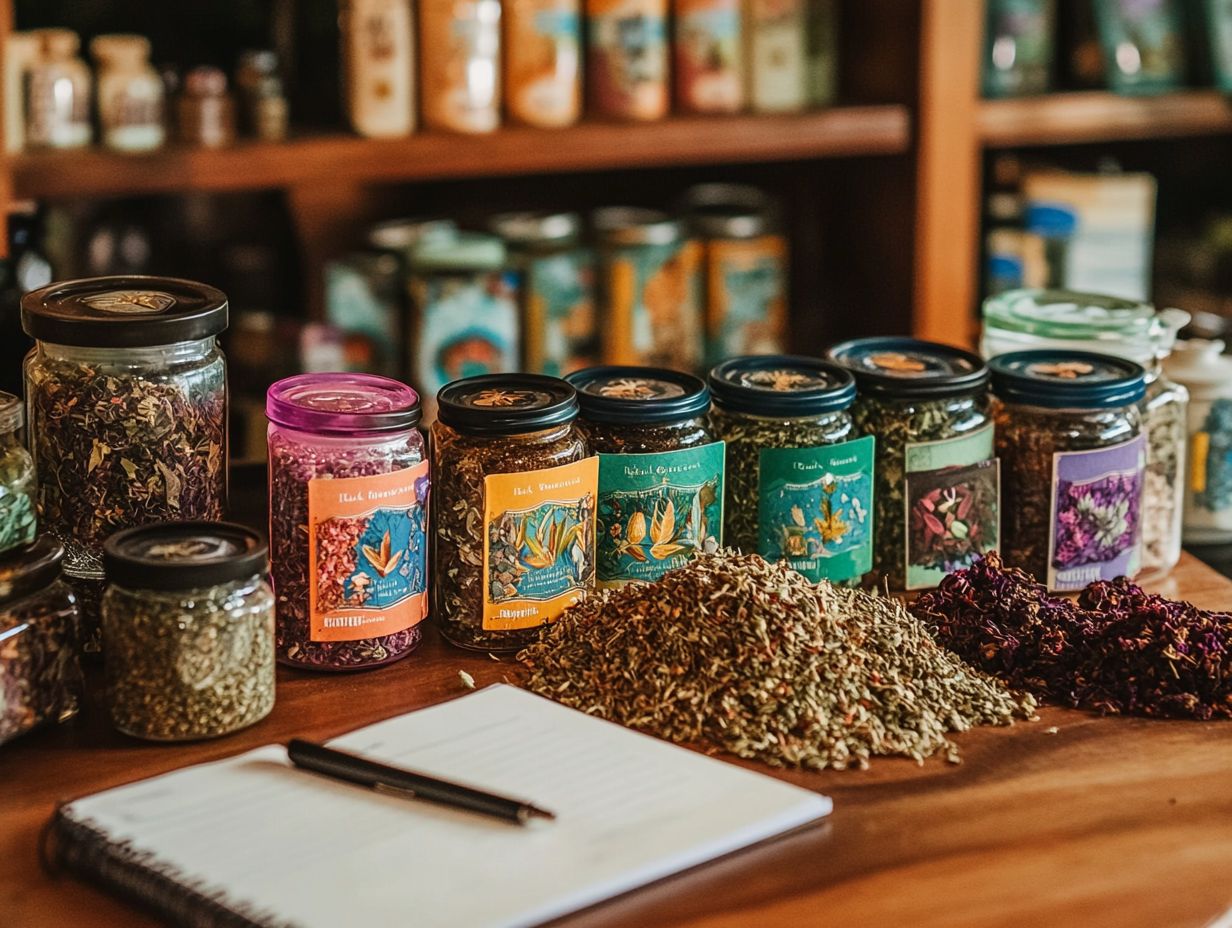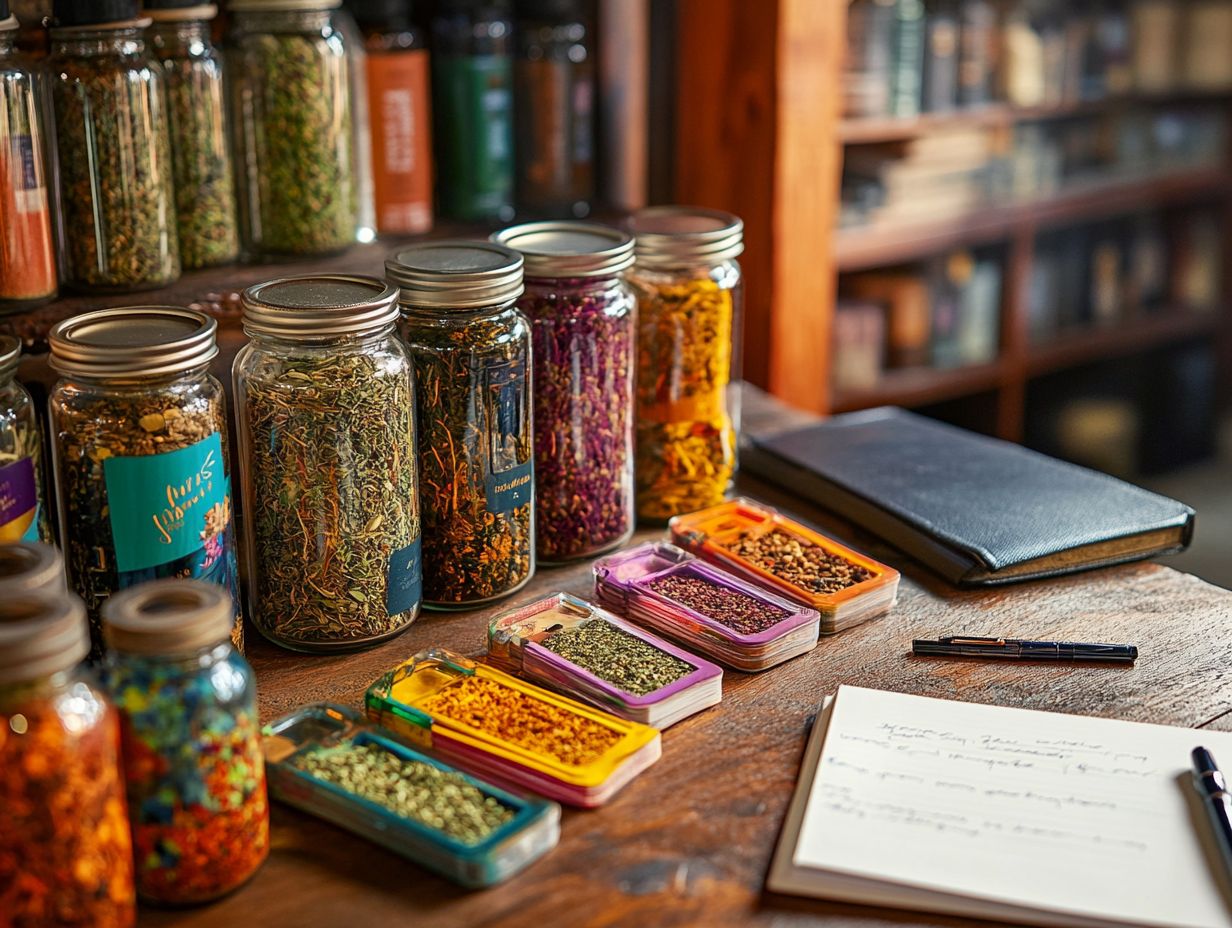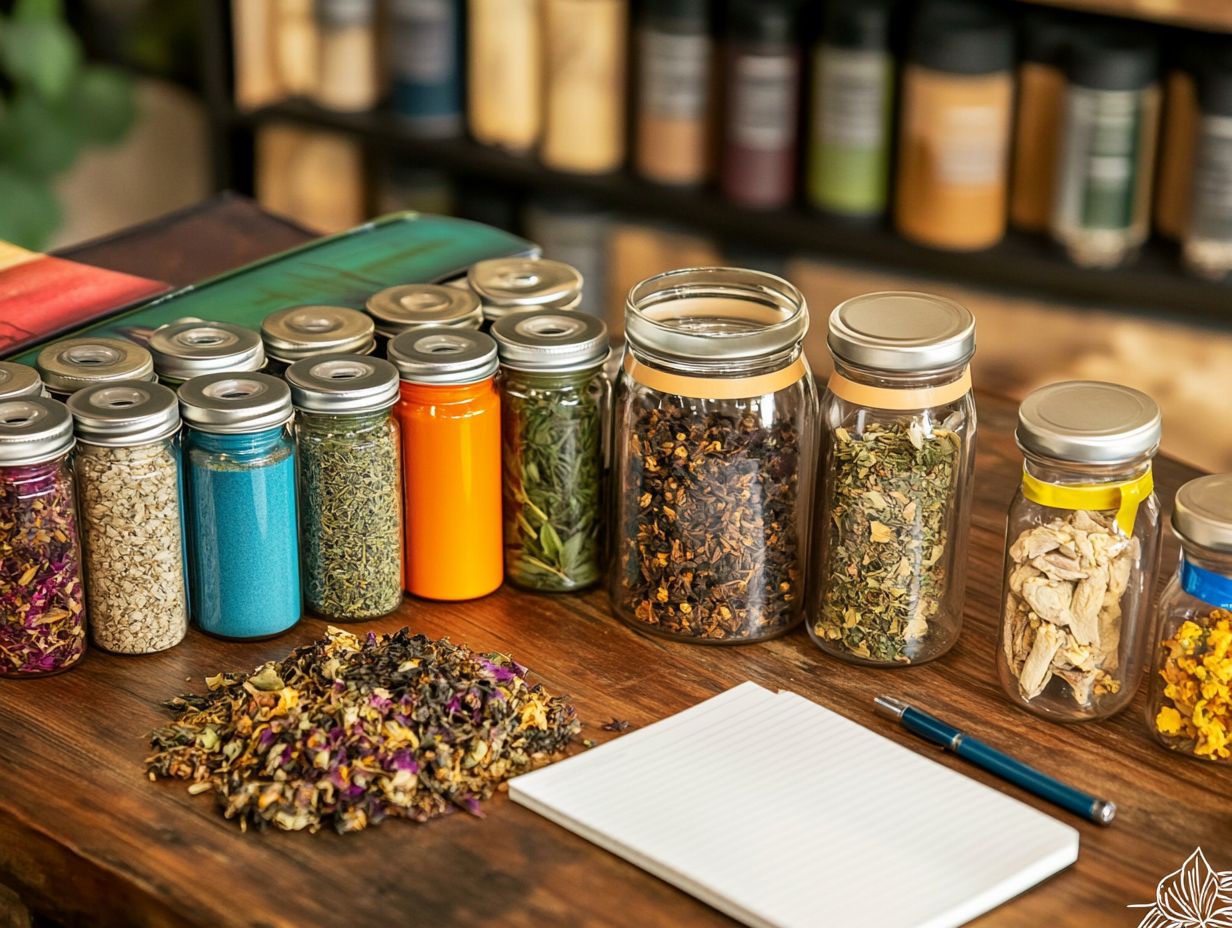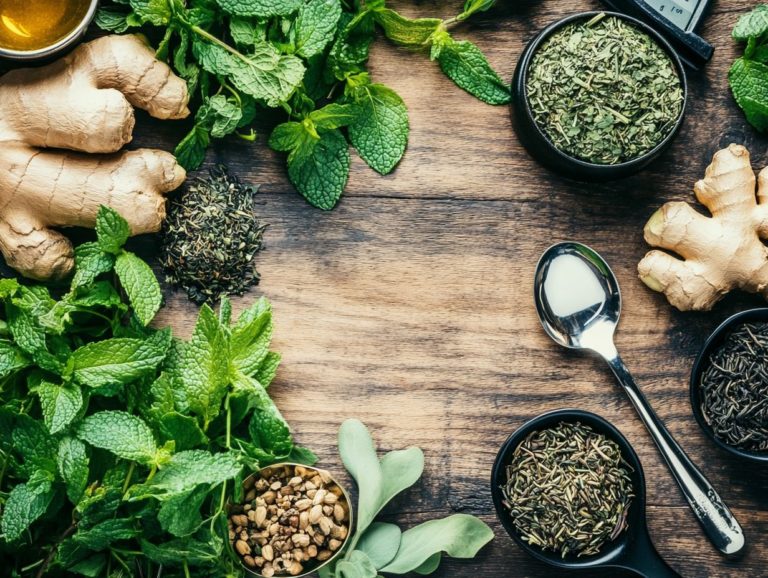Are There Regulations for Herbal Products?
Herbal products have surged in popularity as natural remedies, but you may wonder: how are they regulated? This article takes you through the complex world of herbal products, shedding light on the regulatory bodies that ensure their safety and efficacy. You’ll discover current regulations and standards, evaluate the quality of these products, and tackle the controversies that often surround their use.
This article also explores alternative natural remedies and offers valuable insights for anyone searching for safe and effective options. Navigate with us through this fascinating realm and gain a deeper understanding of herbal products.
Contents
- Key Takeaways:
- Regulations for Herbal Products
- Safety and Efficacy of Herbal Products
- Controversies Surrounding Herbal Products
- Alternatives to Herbal Products
- Frequently Asked Questions
- Are There Regulations for Herbal Products?
- What are herbal products?
- Why are regulations necessary for herbal products?
- Who regulates herbal products and herbal medicine?
- What types of regulations are in place for herbal products and plant-based products?
- Do these regulations apply to all herbal products, including dietary supplements?
Key Takeaways:

- Herbal products are not regulated by a single governing body, but there are regulations in place to ensure their safety and efficacy.
- The quality of herbal products can vary, so it is important to evaluate the source and ingredients before using them.
- While herbal products can have potential benefits, there are also risks and controversies surrounding their use. Consider alternatives and consult with a healthcare professional.
What are Herbal Products?
Herbal products encompass a diverse array of plant-based offerings that you can use for various health benefits, including herbal supplements, remedies, and teas. Rooted in the traditions of herbal medicine, these products harness active ingredients from medicinal plants, making them a sought-after choice for maintaining and enhancing your health with natural solutions.
The different forms that herbal products take capsules, tinctures, and extracts cater to your unique preferences and needs, each tailored for specific therapeutic purposes. Historically, countless cultures have leaned on herbal traditions to address ailments, with wisdom passed down through generations.
In today s market, prioritize safety and efficacy by choosing products that are well-labeled and produced according to established safety standards. This commitment to quality allows you to confidently integrate these natural alternatives into your health regimen, enhancing your well-being with peace of mind.
Regulations for Herbal Products
Regulations for herbal products are essential for ensuring their safety, efficacy, and quality in the herbal industry. These regulations are overseen by esteemed bodies such as the FDA and the European Medicines Agency, adhering to guidelines like current Good Manufacturing Practices (cGMP) and the Dietary Supplement Health and Education Act.
By understanding these frameworks, you ll see a real commitment to high standards in herbal products.
Overview of Regulatory Bodies
Regulatory bodies like the FDA and the European Medicines Agency play crucial roles in overseeing the herbal industry, ensuring that the products you encounter meet rigorous quality standards and consumer safety regulations.
These organizations evaluate the efficacy, safety, and labeling of a diverse range of herbal supplements and products, which shapes market practices and cultivates consumer trust. In the United States, the FDA diligently monitors herbal products, mandating adherence to good manufacturing practices and offering guidelines designed to protect public health. Conversely, the European Medicines Agency imposes a more stringent framework, requiring comprehensive scientific evidence to back health claims made by herbal manufacturers. Additionally, it’s crucial to consider ethical considerations in herbal medicine to ensure responsible practices in this industry.
By enforcing these regulations, both agencies profoundly influence the herbal industry, fostering a culture of accountability and bolstering your confidence in the safety and therapeutic benefits of herbal remedies.
Current Regulations and Standards

Current regulations and standards for herbal products are meticulously crafted to ensure quality and safety. They are governed by frameworks such as FDA regulations and current Good Manufacturing Practices (cGMP). These frameworks mandate rigorous testing and thorough documentation.
These frameworks guide manufacturing processes and shape how you present your products in the marketplace. By complying with these regulations, you foster clear information, allowing consumers to trust the efficacy and safety of the herbal items they choose.
Your labeling must accurately reflect ingredient contents. Any marketing claims should be backed by scientific evidence to avoid misleading information. Adhering to these standards protects consumer safety and boosts your herbal products’ credibility, creating a more informed market for both buyers and retailers.
Safety and Efficacy of Herbal Products
The safety and efficacy of herbal products are paramount concerns, whether you’re a consumer or a healthcare professional. It is essential to conduct comprehensive research into their active ingredients, dosage recommendations, and possible interactions with both prescription and over-the-counter medications.
Evaluating the Quality of Herbal Products
Let’s dive into evaluating the quality of herbal products. You should closely examine their adherence to safety standards and compliance regulations to ensure they meet established quality benchmarks.
This evaluation process involves a range of criteria, from the careful sourcing of raw materials to thorough laboratory testing for contaminants and potency. Quality standards are vital in determining the efficacy and safety of these products, impacting both your health and trust in what you consume.
Regular audits and certifications by reputable organizations can bolster your confidence in herbal remedies, empowering you to make informed choices. Transparency in ingredient labeling allows you to identify potential allergens or additives. Rigorous quality evaluations are necessary in the herbal industry.
Controversies Surrounding Herbal Products
Controversies surrounding herbal products often arise from worries about potential interactions, unregulated health claims, and the overarching question of consumer safety.
These issues spark lively debates about the efficacy and associated risks of these remedies, compelling you to navigate a complex landscape of information and opinions.
Potential Risks and Concerns

When considering herbal products, be aware of the potential risks and concerns. These include adverse interactions with other herbs, a lack of comprehensive safety studies, and inadequate labeling, leading to unintended health consequences for you.
For example, certain herbal supplements may interact negatively with your prescribed medications. This can result in decreased efficacy or even increased side effects. A well-known scenario involves St. John’s Wort, frequently used for depression, which can interfere with antidepressants and potentially lead to serotonin syndrome a serious condition that can be life-threatening.
Be cautious with over-the-counter pain relievers like ibuprofen, as they can pose heightened gastrointestinal risks when combined with certain herbal remedies.
The importance of adhering to precautions when using herbal products cannot be overstated. Comprehensive consumer education is vital to help you navigate these risks, ensuring you understand the potential dangers and variations in product quality that can exist in the marketplace.
Alternatives to Herbal Products
Alternatives to herbal products encompass a diverse array of natural remedies, dietary supplements, and both over-the-counter and prescription medications. Each option is tailored to address specific health needs and conditions.
Other Natural Remedies and Supplements
Other natural remedies and supplements include many options, such as vitamins, minerals, and herbal therapies that address various health conditions and enhance overall wellness.
These alternatives include choices like omega-3 fatty acids for heart health and probiotics that support gut function. Options like turmeric and garlic are well-known for their anti-inflammatory properties.
Before trying these remedies, check how well they actually work through clinical research and evidence-based studies.
While many supplements are regulated to enhance your safety, stay vigilant. A “natural” label doesn t always guarantee safety or effectiveness.
Make smart choices to meet your health goals and reduce any risks.
Frequently Asked Questions
Are There Regulations for Herbal Products?

Yes, there are regulations for herbal products in most countries.
What are herbal products?
Herbal products are made from plants or plant extracts.
Why are regulations necessary for herbal products?
Regulations ensure the safety, quality, and effectiveness of herbal products for consumers.
Who regulates herbal products and herbal medicine?
Regulations for herbal products, including herbal medicine, are typically enforced by government agencies, such as the Food and Drug Administration (FDA) in the United States and the European Medicines Agency.
What types of regulations are in place for herbal products and plant-based products?
Regulations may include requirements for product labeling, manufacturing practices, and ingredient safety, ensuring consumer protection and adherence to quality standards.
Do these regulations apply to all herbal products, including dietary supplements?
Yes, regulations apply to all products marketed as herbal supplements, remedies, or medicines, including over-the-counter and prescription medicines.
Before starting any new supplement or remedy, consult with a healthcare professional.






